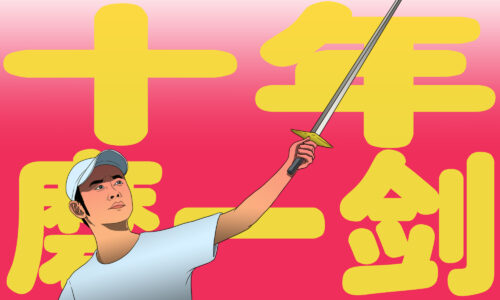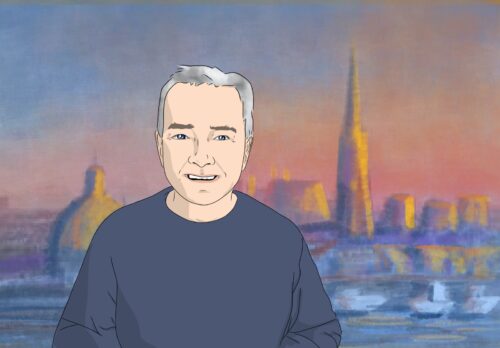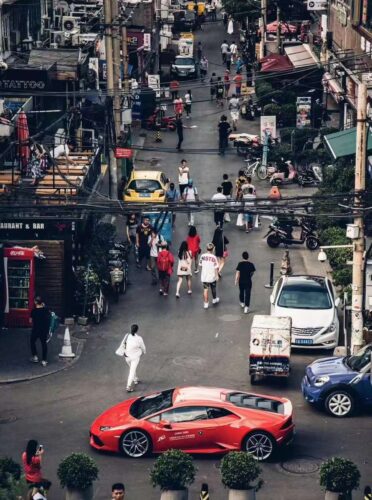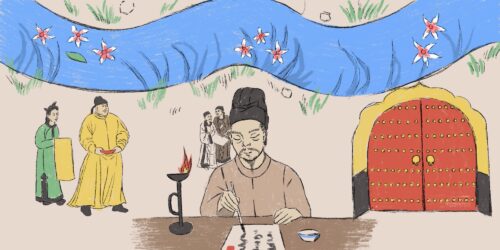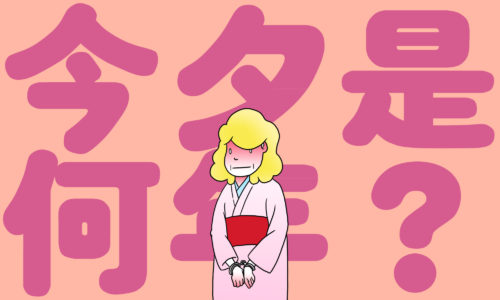Mingbai: Chinese poetry of the cup
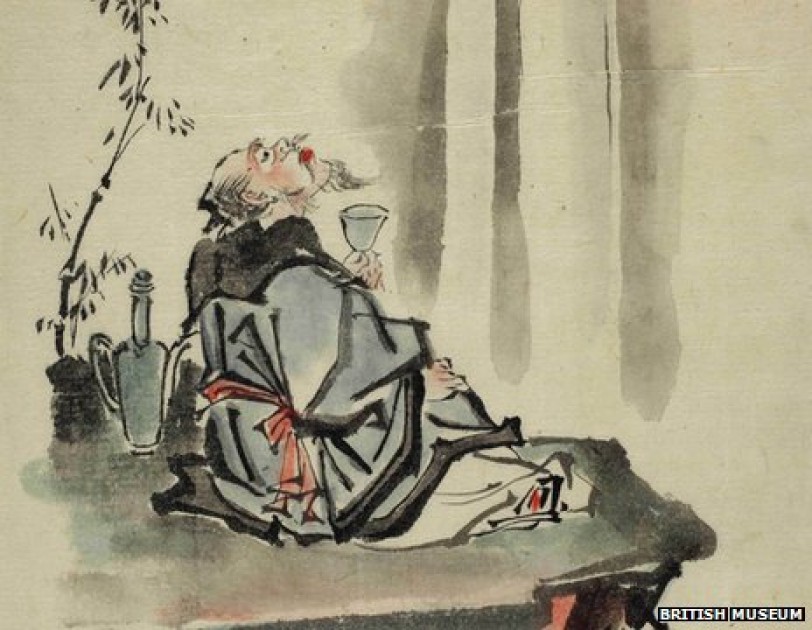
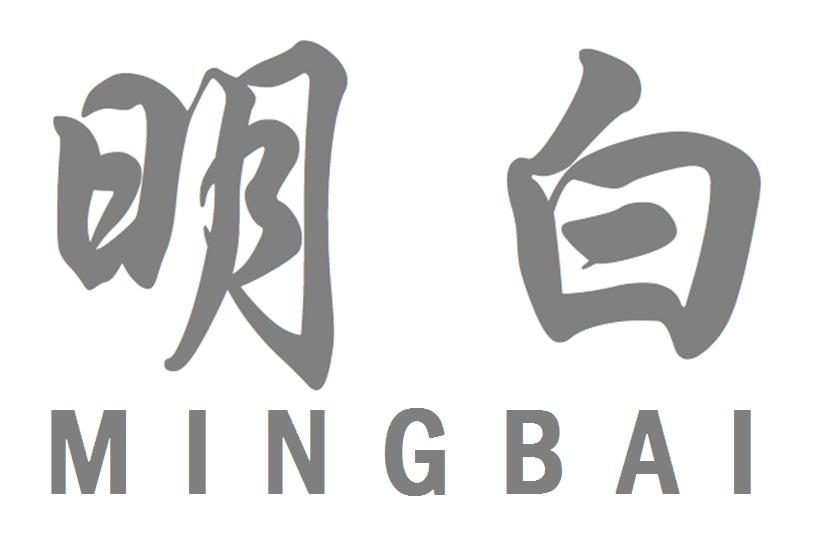 Mingbai (明白, meaning “understand”), written by Christian Føhrby and Deng Jie, is a daily newsletter that drops knowledge on things “everyone in China knows, but almost nobody outside the country knows.” Sign up for it at GetMingbai.com.
Mingbai (明白, meaning “understand”), written by Christian Føhrby and Deng Jie, is a daily newsletter that drops knowledge on things “everyone in China knows, but almost nobody outside the country knows.” Sign up for it at GetMingbai.com.
Whereas other cultures may, on festive occasions, whip out a vodka, a grappa, a marc, a raki, or a snaps, the Chinese king of liquors is baijiu.
For the uninitiated, the name of this clear drink is pronounced roughly like “Bye, Joe!” and literally means “white liquor,” though that translation is as tasteless as calling wine a “red drink.” Baijiu is made primarily with sorghum, although other bases like wheat and rice are often added to the mix.
Baijiu is steeped in tradition. The most famous (and expensive!) type, Maotai, is the stuff of legend: Henry Kissinger is rumored to have told Deng Xiaoping: “I think if we drink enough Maotai we can solve anything.” Former minister Chen Yi is known to have written a poem titled, “We’ll Meet Again in Nanjing and Drink Maotai.”
He is not alone in that poetic tradition. Some of China’s finest poets — perhaps even the finest — were admirers of the merry drink. Let’s take a look at Li Bai 李白, whose immortal poetry is learned by heart in every classroom across China and is compared in cultural importance to Shakespeare.
Li Bai lived during the Tang Dynasty (618-907), often known as China’s Golden Age. His poems were often about the beauty of friendship, the wonders of nature, and wine. He was described as one of the “Eight Immortals of the Wine Cup,” and wrote some of his best work while drunk.
A celebrity during his lifetime, Li Bai was friends with the emperor. Still, he lived the life of a poetic wanderer, always traveling from place to place.
Popular legend has it that he drowned because he reached out to grab the moon’s reflection in the river — while drunk.
One of Li Bai’s poems, “Drinking Alone Under the Moon” (月下独酌 yuè xià dúzhuó), is a particularly beautiful ode to the beloved drink. The following artful translation is by John Derbyshire. To best appreciate the rhythm, read it aloud to yourself. Not too fast. Just enjoy it.
Among the flowers with wine beneath the sky
Alone I drink — no friend or kin, just me
I raise my cup to toast the moon on high
That’s two of us; my shadow makes it three
Alas, the poor moon knows not wine’s delight
My shadow follows like a living thing
At last with moon and shadow I unite
In joyful bond, to seize the last of spring
I sing: it sets the moon to rock in time
I dance: my shadow cannot hold its place
Sober, we share companionship sublime;
Drunk at last, we drift apart in space —
Lost to worldly things, until some day
We’ll meet again, beyond the Milky Way
And the Chinese:
花间一壶酒,独酌无相亲。
Huā jiān yī hú jiǔ, dúzhuó wū xiāngqīn.
举杯邀明月,对影成三人。
Jǔ bēi yāo míngyuè, duì yǐng chéng sān rén.
月既不解饮,影徒随我身。
Yuè jì bù jiě yǐn, yǐng tú suí wǒ shēn.
暂伴月将影,行乐须及春。
Zàn bàn yuè jiāng yǐng, xínglè xū jí chūn.
我歌月徘徊,我舞影零乱。
Wǒ gē yuè páihuái, wǒ wǔ yǐng língluàn.
醒时同交欢,醉后各分散。
Xǐng shí tóng jiāohuān, zuì hòu gè fēnsàn.
永结无情游,相期邈云汉。
Yǒng jié wúqíng yóu, xiāng qī miǎo yúnhàn.
When drinking with more than simply the moon and your shadow, remember to show respect by clinking your glass lower than the person you’re drinking with. Manners maketh man, they say.
Ganbei! (Cheers!)
Come back next Wednesday for more Mingbai, and remember to sign up for the daily newsletter.
